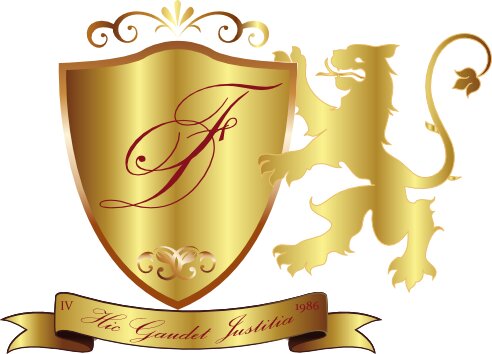Best Debt & Collection Lawyers in Turin
Share your needs with us, get contacted by law firms.
Free. Takes 2 min.
List of the best lawyers in Turin, Italy
About Debt & Collection Law in Turin, Italy
Debt and collection law in Turin, as in the rest of Italy, governs the process through which creditors can recover unpaid debts from individuals or businesses. This legal field encompasses a range of activities, from sending demand letters and negotiating repayment, to initiating litigation or insolvency proceedings if required. In Turin, local courts and legal professionals are well-versed in both national regulations and procedures specific to the Piedmont region, ensuring that debt recovery actions adhere to the applicable legal framework while respecting the rights of both debtors and creditors.
Why You May Need a Lawyer
There are several situations where consulting a lawyer who specializes in debt and collection can be essential:
- You are a business or individual facing persistent non-payment from clients or customers.
- You have received formal notification regarding an outstanding debt and do not know how to proceed.
- You are considering legal action to recover unpaid debts or defend yourself from unjustified claims.
- You require assistance in negotiating repayment plans or settlements outside of court.
- You wish to understand your legal rights and obligations under Italian law regarding debts and collections.
- Your business needs help with credit management policies or preventing future debt-related issues.
Local Laws Overview
Italian debt and collection law is regulated at a national level but is enforced locally in Turin by the courts ("Tribunale di Torino") and relevant enforcement officers. Key aspects to be aware of include:
- Extrajudicial Collection: Creditors may initially attempt to collect debts through amicable settlement, often involving formal demand letters or negotiations.
- Judicial Collection: If out-of-court efforts fail, creditors may file a decreto ingiuntivo (injunction for payment) with the court, a fast-track legal order compelling the debtor to pay.
- Enforcement: Should the debtor not comply, enforcement measures may be taken, such as the seizure of assets (pignoramento), wage garnishment, or bank account freezing, all under court supervision.
- Time Limits: There are statutory limitations on the enforceability of debts, generally 10 years for most contractual debts but shorter for specific obligations.
- Bankruptcy and Insolvency: If a debtor is unable to pay, bankruptcy or insolvency proceedings may be initiated with the assistance of the Torino courts.
- Consumer Protections: Debtors retain important protections under Italian law, including limits on harassing conduct by collectors and the right to contest claims.
Frequently Asked Questions
What should I do if I receive a formal debt collection notice in Turin?
Remain calm and do not ignore the notice. Review the details and verify their accuracy. If you believe the debt is unfounded, contact a lawyer to understand your options and respond appropriately.
How long does a creditor have to recover a debt in Italy?
The general statute of limitations for contractual debts is 10 years, but certain debts (such as utility bills or rent) may have shorter terms ranging from 3 to 5 years.
Can debts be collected without going to court?
Yes, extrajudicial collection is common and often begins with formal demand letters and negotiation attempts. Many cases are resolved amicably before court proceedings are necessary.
What is a "decreto ingiuntivo"?
It is a judicial procedure in which a creditor petitions the court for a payment order against the debtor. If uncontested within 40 days, it becomes enforceable like a regular judgment.
What happens if I do not pay after a court order?
After a court order, creditors can seek enforcement measures such as asset seizure or wage garnishment, all under the supervision of the court.
Can I negotiate a payment plan if I cannot pay in full?
Yes, it’s common and often in both parties’ interests to agree to a structured repayment plan. An attorney can assist you in negotiating and formalizing such agreements.
What if I dispute the debt?
You have the right to contest the debt formally, particularly if you believe it is incorrect or unjustified. Legal advice is important to navigate the dispute process effectively.
Are there laws against aggressive or harassing collection practices?
Yes, Italian law provides consumer protections against harassment, threats, or unlawful pressure during debt collection processes.
Does bankruptcy in Italy erase all debts?
Bankruptcy can lead to the discharge of many-but not all-debts; some obligations, like alimony or certain fines, may still have to be paid. Bankruptcy is a complex legal process and requires professional advice.
Where are debt collection cases handled in Turin?
Such cases are generally handled by the Tribunale di Torino (Turin Civil Court), while enforcement procedures may involve judicial officers such as bailiffs.
Additional Resources
If you need further information or assistance, consider the following resources:
- Tribunale di Torino: The local civil court handling debt and collection disputes.
- Ordine degli Avvocati di Torino: The Turin Bar Association, where you can find qualified debt collection lawyers.
- Associazioni dei Consumatori: Consumer associations providing protection and advice for those facing debt collection.
- Camera di Commercio di Torino: Turin’s Chamber of Commerce, offering resources for businesses dealing with unpaid invoices.
- Equitalia and Agenzia delle Entrate-Riscossione: Public entities that manage tax and public debt collections in Italy.
Next Steps
If you believe you need legal assistance with debt and collection matters in Turin:
- Gather all relevant documents: contracts, invoices, correspondence, and any collection notices received.
- Contact a local debt collection lawyer or the Turin Bar Association for a professional referral.
- Schedule a consultation to discuss your specific situation and clarify your rights and obligations.
- Follow your lawyer’s guidance on how to respond to creditors, courts, or collection agencies.
- Consider mediation or negotiation if appropriate, as many disputes are resolved without litigation.
- Take action promptly, as Italian law imposes deadlines on both creditors and debtors.
Seeking the support of a competent legal professional in Turin is the most effective way to protect your interests and resolve debt and collection issues efficiently and lawfully.
Lawzana helps you find the best lawyers and law firms in Turin through a curated and pre-screened list of qualified legal professionals. Our platform offers rankings and detailed profiles of attorneys and law firms, allowing you to compare based on practice areas, including Debt & Collection, experience, and client feedback.
Each profile includes a description of the firm's areas of practice, client reviews, team members and partners, year of establishment, spoken languages, office locations, contact information, social media presence, and any published articles or resources. Most firms on our platform speak English and are experienced in both local and international legal matters.
Get a quote from top-rated law firms in Turin, Italy — quickly, securely, and without unnecessary hassle.
Disclaimer:
The information provided on this page is for general informational purposes only and does not constitute legal advice. While we strive to ensure the accuracy and relevance of the content, legal information may change over time, and interpretations of the law can vary. You should always consult with a qualified legal professional for advice specific to your situation.
We disclaim all liability for actions taken or not taken based on the content of this page. If you believe any information is incorrect or outdated, please contact us, and we will review and update it where appropriate.











